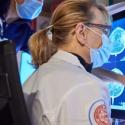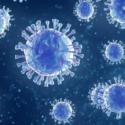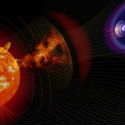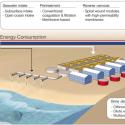Science Is Essential
Science touches so many aspects of modern life that it's hard to keep up. Through our programs and this website, Science for the Public provides up-to-date information about scientific innovations, discoveries, and issues that are shaping modern knowledge.
Coming Events
The Brain-Computer-Interface Paradox
05-20-25 For individuals paralyzed by injury, stroke or ALS, brain-computer-interface (BCI) devices can enable movement and even speech. However, there are concerns: specifically, that such technology could be developed for mind control. Lukas Meier
Space Debris Alert!: The Potential Impact on the Ozone Layer and Earth’s Climate
05/27/25 (rescheduled) Thousands of satellites orbit Earth. At the end of their missions, they drop into and burn up in the stratosphere, depositing ash that contains oxides and pollutants that are affecting both the ozone layer and the planet's climate. Atmospheric scientists are working to analyze the aerosols and their worrisome impact. Daniel Cziczo
Recent Events
Cancer Research: How It Works and Why It's Crucial Today
04/08/25 Numerous types of cancer are increasing today and scientists are trying to identify the causes. That's why cancer research is one of the most important concerns of modern science. We learn how the research is done and also why federal funding for this work is essential. Gerald Denis
Addressing the Global Water Shortage
03/11/25 Due mainly to climate change and wasteful agricultural practices, the supply of freshwater is rapidly diminishing across the globe. To provide water for the world’s huge population, governments must quickly develop advanced conservation and sustainability policies. Jay Famiglietti
Is Earth Exceptional?
02/18/25 Is there life beyond Earth? So far, despite the discovery that there are billions of planets in our galaxy, and our increasingly sophisticated probes for life, we still don’t know. Life and the conditions for its emergence are both very complex phenomena. Mario Livio
Cosmos: Solar Systems
Stellar death explosions produce massive gas and dust clouds, and some of that detritus becomes solar systems ...
Germs and Disease
The notion that invisible organisms cause disease was very difficult to accept
Resistance to New Ideas
Many of the most important advances in scientific understanding were initially rejected or ignored.
Life: Evolution and Extinction
The long reign of bacteria, the eventual branching and diversification, symbiogenesis, the dramatic mass extinctions and resurgence of life...
Featured Items
Virus vs Host: An Enduring Battle
02/14/23 Viruses must appropriate the DNA/RNA of living cells in order to survive. The battle between viruses and cell defenses is a classic example of the epic struggles that characterize Nature. John Connor
An Update on Those "Forever" Chemicals
10-17-23 WGBH Forum Network webinar
PFAS, a group of chemicals added to many everyday products, became a concern years ago among medical researchers, but governmental agencies were slow to impose regulations. Philippe Grandjean
Heads Up! Surprising Stats
Science for the Public is committed to improving public knowledge of science and public appreciation for the contributions of science to social progress.
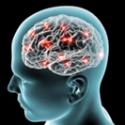
The Biological Mind
03/27/18 The "mind" is not an isolated entity; it is connected to a physical-social environment. Alan Jasanoff
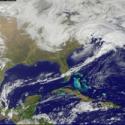
Atmosphere: Earth and Elsewhere
04/25/17 What an atmosphere is, what it does, how it changes --on Earth, elsewhere in our solar system and beyond. Daniel Cziczo

The Long Reach of Polar Glacial Melts
04/12/21 The accelerating Arctic and Antarctic glacial melts will affect sea levels and land masses in different areas of the globe --often far from the polar regions. Natalya Gomez

Designing Sustainable Urban Development
11/25/19 How the world-class Sustainable Design Lab at MIT combines architecture, engineering, physics --and creative genius-- to design the optimal urban environment.
Christoph Reinhart
Today's Featured Contributors
Featured Author

Robert Pollin, Ph.D.
This book is essential reading for a real understanding of the relationship between our economic system and the global climate crisis.
Featured Guest

William Detrich, PhD
An outstanding scientist reveals how the "anti-freeze" adaptations in Antarctic icefish can shed light on the relationship between climate and evolution and also on resistance to disease
As a world society, it seems clear that we have arrived at a point in our history when there must be a major increase in the capability of ordinary people to cope with the scientific and technological culture that is shaping their lives and the lives of their children.
—Leon Lederman, Nobel Laureate in physics



